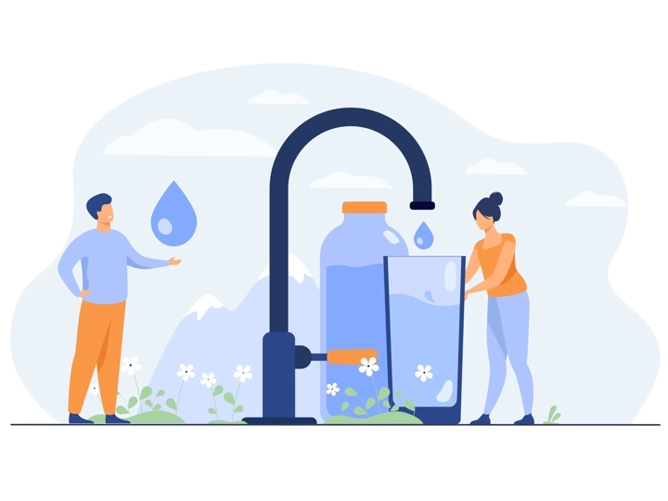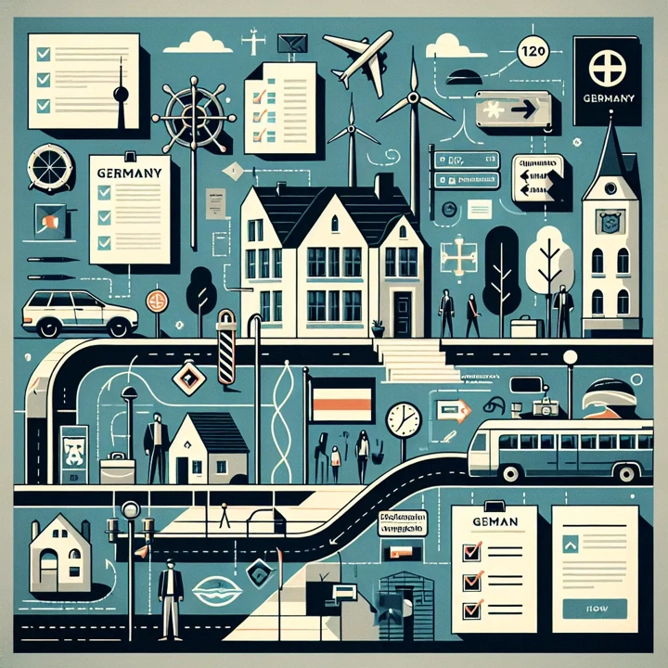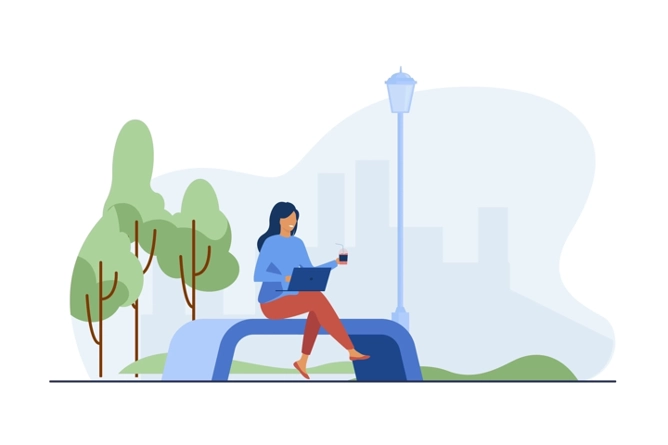
Can We Drink Tap Water (Leitungswasser) in Germany? – [2025]
In Germany, you will come across the phobia of drinking tap water. In fact, you would have read about it on the internet too. You might be wondering if it’s true or not. So, we are here to clear the air. Here is all that you need to know about drinking tap water in Germany.
Tap water in Germany
It doesn’t matter what the common perception is. The thing that matters is whether the water is potable or not.
Where Does The Tap Water Come From?
Germany has many central water facilities. These facilities are responsible for dispensing water to large specific areas. These facilities are kept responsible for the quality of water being provided. In fact, Federal Environment Agency (Umweltbundesamt) UBA keeps checking on them by testing water samples from different areas. This is done to make sure that the people get high-quality pure water.
These water facilities take water from the following sources.
- 69% is obtained from groundwater. It is the biggest source of tap water in Germany.
- 15% is surface water.
- The remaining 16% comes from bank filtrate and artificially recharged groundwater.
Qualities of Tap Water in Germany
Here are some qualities of tap water in Germany.
- Tap water in Germany is never fluorinated or chlorinated. This clears the chance for the presence of one of the major impurities in water.
- Nitrate is a very common water impurity, especially near agricultural land. But, UBA, the German environmental agency has found nitrate above the limit, almost nowhere.
- Bacteria, especially E.coli, is another major water contaminant. But most of the German water is declared free of it too.
- UBA also tested samples for lead poisoning. Lead is one of the most dangerous water impurities. It can lead to severe health issues, including cancer. This is the very reason water facilities are instructed to issue a warning if they detect lead in water. However, German tap water is almost always free of any lead.
- Similarly, the quantity of chromium is said to be below hazardous levels.
- Apart from being pure, the water is also quite delicious, at least this is what the locals say.
How Can You Improve Quality of Tab Water in Germany?
Though tap water is considered safe by UBA, they still highlighted the presence of small amounts of impurities. The presence of microplastics in water is a widespread issue that affects the whole of Europe, let alone Germany. Hence, it is better to take steps to improve water quality before consuming it directly from the tap. Here are a few methods that can help you out.
Use Tap Filters
No matter how safe the water is, some people just don’t like the slight taste of tap water. In such cases, you can use tap water filters. They clean water of any taste or odor. Apart from that, it is also good to remove minute impurities, even way below the contamination limit.
Boil Water
The small quantities of impurities found in the water can be removed by boiling. But boiling water is not a practically feasible solution. You cannot possibly boil every glass of water that you are about to drink. But this concept helps you in cooking. When you are cooking food, you can use tap water directly. As the food has to be heated, the water will be heated along with it, hence, making it safe to be ingested.
Also, some buildings have boiling systems. If your building has one too, you can consume tap water directly without any danger of contamination.
Cases When You Should Avoid Tap Water in Germany
Though tap water in Germany is usually safe to consume, there could still be some exceptions when you should avoid tap water in Germany.
- In old buildings, the plumbing system is also old. With time, lead and other toxicants start seeping into these old and cracked water pipes.
- If industries start dumping chemicals into the water reservoir being used by the central water facility, it can make the water unfit for consumption.
However, in most such cases you will find a public warning of “Wasser ist nicht gut” or “Wasser ist nicht trinkbar”. It clearly means that the water isn’t drinkable.
Comparison between Tap Water \& Bottled Water
No matter how nutritious tap water is, most Germans still prefer mineral water over tap water. In fact, you will be surprised to know that on average, a German citizen drinks a total of 147 liters of mineral water per anum. In fact, the sales are so high that it attracts plenty of sellers to jump in. The industry has gone to a level where you can find over 500 brands of bottled water.
Well, here is a comparison between tap water and bottled water. Let’s see if we can find a reason to prefer bottled water.
| Tap Water | Bottled Water |
|---|---|
| First of all, tap water is accessible anywhere. | You have to run to the market or keep a stock of it. Neither of them is an easy task. |
| Tap water can be contaminated. But you will find a warning or sign stating the impurity of water. | Bottled water almost never contains impurities. But plastic bottles can cause contamination to some extent, especially, if kept in direct sunlight during their course from manufacturer to the seller. |
| If the tap water is hard, it can contain chalk. You can even find deposits over the boiler as proof. | Bottled water is never hard, as they use soft water only. |
| Serving tap water might not put a great impression on your guests. | However, fancy bottled water can really boost your impression. In fact, restaurants use bottled water for this purpose. |
| Tap water is nutritious. Its natural mineral content sometimes even beats that of bottled water. | Though bottled water is advertised as super nutritious and healthy, it isn’t always true. Some of them do not even contain the basic nutrients present in tap water. |
| If you like sparkling water, tap water can disappoint you. But you can still buy a carbonator and carbonate your water on your own. | On the other hand, getting sparkling mineral water is super easy. |
| Tap water is super cheap. | If you are a minimum wage earner. Bottled water can put a real strain on your budget. |
| Tap water can sometimes have a little taste and odor. Some people might find it irritating. | Bottled water is completely tasteless and odorless. |
Why is it taboo to drink tap water in Germany?
It is just a misconception that Germans do not drink tap water. You will be amazed to know how most of the public drink tap water and feel totally safe about it. There are a few factors that led to this notion.
Role of the German Restaurants
This misconception is mainly built by German restaurants. They prefer to sell bottled water rather than tap water. It can be their selling strategy or maybe the notion has been set deep in the society. However, even if you ask for tap water, most of the restaurants will refuse to provide you with that. This practice has created an overall image that the Germans do not drink tap water. In fact, tourists visiting restaurants take the impression that maybe the German tap water is not fit for consumption.
Terminologies used for water at a German restaurant
As told earlier, in Germany, restaurants avoid serving tap water. However, to even order bottled water, remember these terminologies.
- Spritzig, Sprudelwasser, Mineralwasser, Prickelnd, Sprudel, and Selters are different words for ordering sparkling water.
- If you are asking for non-carbonated bottled water, ask for Wasser ohne Kohlensãure/Gas or stilles.
- Leitungswasser is the common word for tap water.
Literal meaning of Leitungswasser
Another reason could be the German word for tap water. Leitungswasser, the German word for tap water, literally means ‘plumbing water’. It feels quite disgusting to consume plumbing water. Hence, it creates a general concept that tap water is not potable.
The Bottom Line – What should you do?
The whole debate now comes to the point where you have to decide what you do. If you are new to Germany, all this could be a little overwhelming for you. You might be scared of feeling judged for drinking or offering tap water. But you do not need to be scared of that. The masses in Germany find it absolutely normal to drink tap water. However, some may prefer bottled water, but drinking tap water still remains a thing. But if you want sparkling water, it is better to go for bottled water. The expense of buying a carbonator, the toil of carbonating the water and keeping gas for carbonation, is just not worth it. You better just go out and get yourself a bottle of sprinkled water.
Those who can make their peace with normal water, absolutely do not need to spend their money on bottled water.

Jibran Shahid
Hi, I am Jibran, your fellow expat living in Germany since 2014. With over 10 years of personal and professional experience navigating life as a foreigner, I am dedicated to providing well-researched and practical guides to help you settle and thrive in Germany. Whether you are looking for advice on bureaucracy, accommodation, jobs, or cultural integration, I have got you covered with tips and insights tailored specifically for expats. Join me on my journey as I share valuable information to make your life in Germany easier and more enjoyable.





